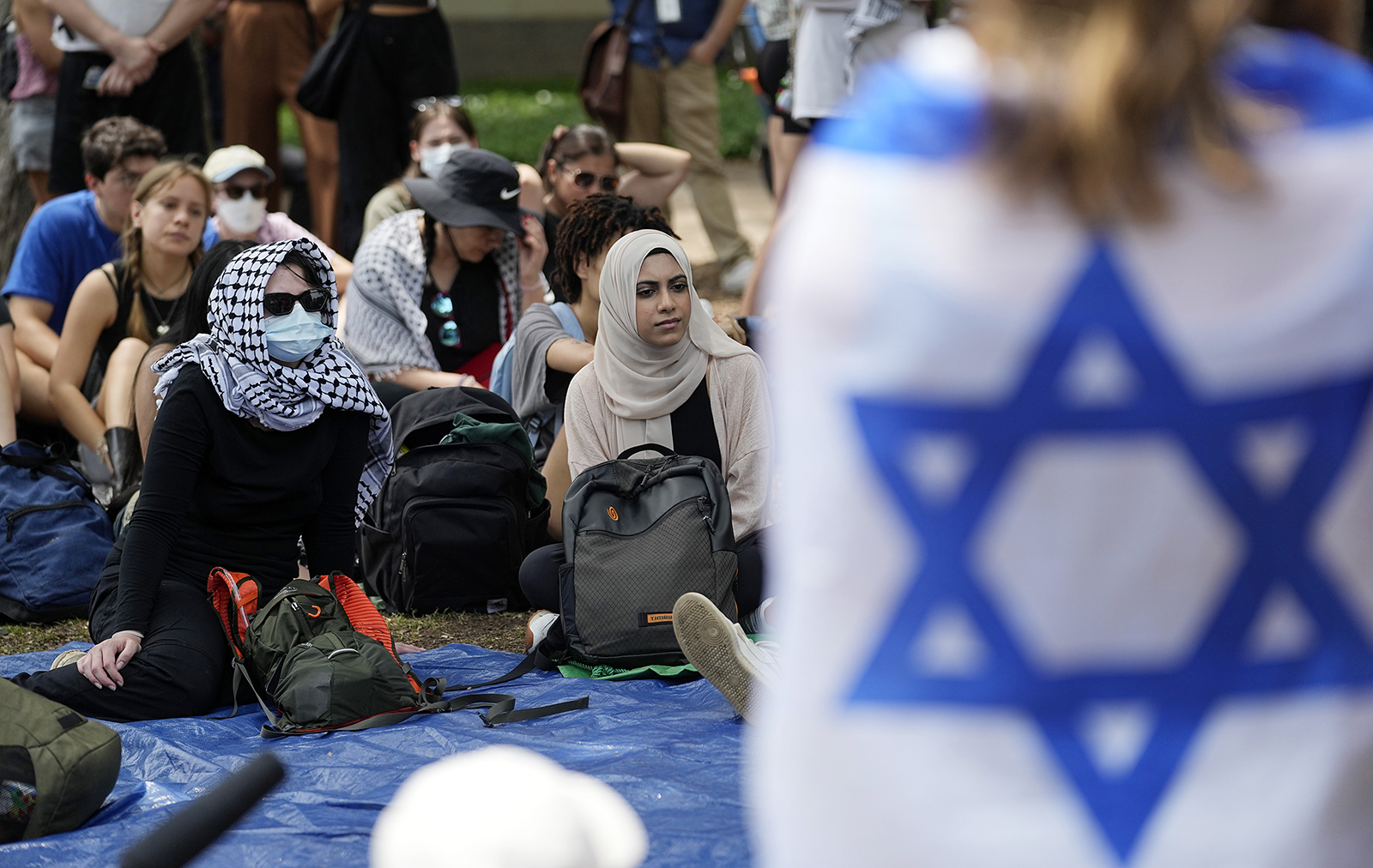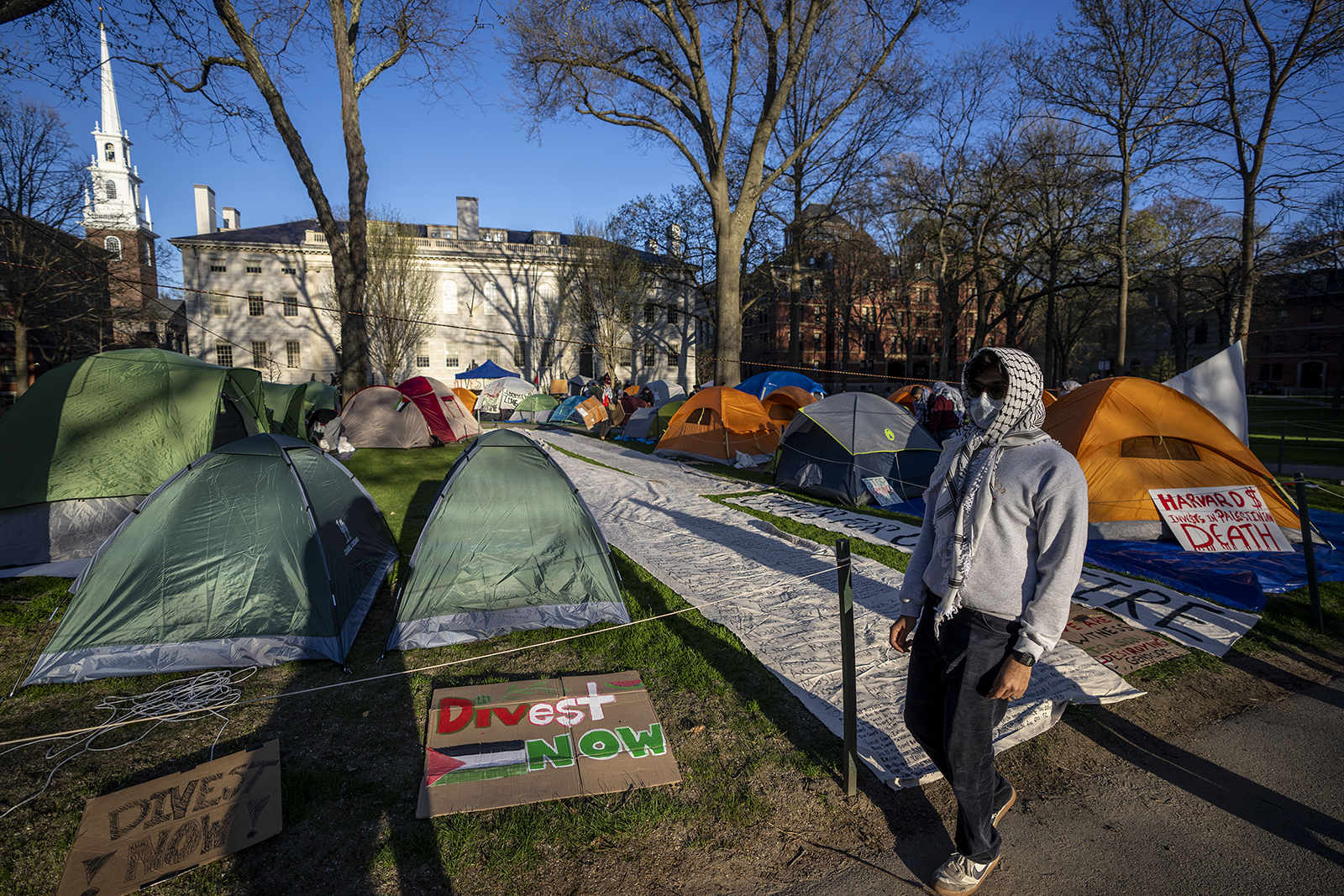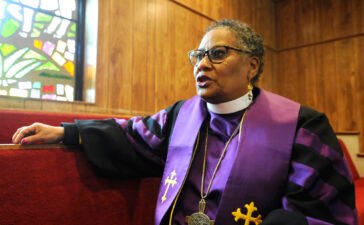(RNS) — James Henry Brook, a rising high school senior from Birmingham, Alabama, had long planned on applying to the joint program run by Columbia University and the Jewish Theological Seminary in Manhattan.
That changed after the Oct. 7 Hamas massacre, and the many antisemitic incidents and calls for violence against Jews and Israel on and around the Columbia campus. “JTS/Columbia was a university that I wanted to apply to, and I know people who are current students at JTS,” said Brook, who recently made the round of college campuses. “The protests at Columbia are one of the main reasons why I am not interested in Columbia anymore.”
Today, Brook is seriously considering Southeastern Conference schools such as Texas A&M and Mississippi State “because of sports and because there has been little to no antisemitism that I have found,” he said.
Wherever he ultimately goes, said Brook, antisemitism has become “a major factor” in his choice of college.
Brook is in good company.
A poll conducted in mid-March on behalf of Hillel International, the world’s largest Jewish campus organization, found that 96% of families of Jewish high school students are concerned about the increase in college campus antisemitic incidents since Oct. 7, and 84% said they are talking to their child about how to handle antisemitism on campus.
Nearly two-thirds (64%) of the families said they have eliminated colleges and universities due to fears of antisemitism.

A student wrapped in an Israeli flag listens to pro-Palestinian protesters gathered on campus at the University of Texas at Austin, April 30, 2024, in Austin, Texas. (AP Photo/Eric Gay)
Antisemitic incidents have soared at dozens of college campuses during the past few years, but since the Hamas attack and the subsequent Israel-Hamas war, such attacks have risen 700%, according to Hillel, the Jewish campus organization. Jewish students have been subjected to “harassment, assault and vandalism” on numerous campuses, according to the Anti-Defamation League, which has created Not on My Campus, a list of questions Jewish students should ask when considering a college.
The ADL has also tracked the impact of the pro-Palestinian protests on campus. Mezuzahs have been torn off the doorposts of Jewish students’ dorm rooms and swastikas have been painted on dorm walls. Protesters have tried to prevent Jewish students from accessing swaths of their campus and from attending religious services.
At some schools, the ADL said, students are demanding that their colleges ban Jewish organizations such as Hillel, which organizes Shabbat services, kosher food and Jewish programming; divest from charitable organizations that fund Jewish activities and academic research; and ban all “Zionists” from campus — meaning all Israeli students, academics and guest lecturers, and anyone — Jewish or not — who believes that Israel has a right to exist.
The ADL’s Antisemitism Report Card gives failing grades to Harvard, Massachusetts Institute of Technology, Stanford, Michigan State and Northwestern, among others; and a “D” to Yale, Princeton, Rutgers, Cornell and several University of California campuses.

A student protester against the war in Gaza walks past tents and banners in an encampment in Harvard Yard, at Harvard University in Cambridge, Mass., on April 25, 2024. (AP Photo/Ben Curtis)
From the start of the war, Jewish students and their parents have taken note as well. Founded in late October in the wake of Hamas’ attack on Israel, the Facebook group Mothers Against College Antisemitism quickly attracted close to 60,000 members.
Alycia Hochberger, an independent college counselor in Massachusetts, said several of the families she advises recently dropped Columbia and other colleges from their wish lists.
On the plus side, said Hochberger, “Brandeis has extended their transfer application deadline, and Providence College in Rhode Island has said that if you’re Jewish and feeling unsafe on your campus, we’ll make accommodations for you.” One of Hochberger’s students was waitlisted at Syracuse University but opted for Indiana University “because it quashed the protests.”
Hochberger has also started discussing Christian universities such as Loyola in Chicago and Boston College with some of her Jewish clients because their administrators have not welcomed Columbia-style protests. At Boston College, a one-hour anti-war protest was permitted, but without tents or loudspeakers.
Barak Moore, an independent SAT/ACT tutor who lives in Israel, said Israeli students’ interest in studying in the U.S. has gone down to some degree. “I know of cases in which students who were on the fence about going have now decided against it. Plus, it has dramatically affected which schools Israelis are choosing,” he said.
Moore said his twin sons, both students at MIT, have been “negatively affected” by antisemitism on campus. “MIT deserves the ADL report card grade of ‘F,’” he said.

A passer-by, right, walks through a pro-Palestinian encampment of tents, April 25, 2024, on the Massachusetts Institute of Technology campus, in Cambridge, Mass. (AP Photo/Steven Senne, File)
With many college decisions, especially at premier colleges, locked up in late fall via early admission, some students who selected their schools before the protests gained steam now regret their decisions.
“I applied and committed to a Ph.D. program before everything blew up,” said Sasha Manus, a Jewish biomedical sciences student who will be attending the Jacobs School of Medicine at the University of Buffalo in the fall. “In my heart of hearts, I want to defer my matriculation until next year; but I can’t. I have to move forward in my life.”
Manus and many other Jewish students are worried about their personal safety on campus.
“In April, a student threatened to ‘shoot up’ a Jewish Student Union march on Buffalo’s North Campus,” said Manus. “I look like a stereotypical Ashkenazi Jew, and I have an obvious disability. I will be the easiest target for a radicalized student on that campus, and I live aware of it. I can only hope that things settle down before the fall.”
It appears that even some non-Jewish families have also been turned off by what they’re seeing on college campuses.
“While we respect the right to peacefully protest, there were demonstrations on college campuses that severely crossed the line,” said Michael Giaconelli, a Christian whose daughter will be graduating from a New York high school later this month. “People do not have the right to threaten, intimidate or intrude on the rights of others. The reports of Jewish students being threatened and made to feel unsafe on campus is appalling.”
After careful consideration, Giaconelli’s daughter chose a school “that had no reports of any pro-Hamas or anti-Jewish” activities. “I could never support sending one of my children to schools like Harvard or Columbia, where they allow radical ideology to run wild,” he said.





